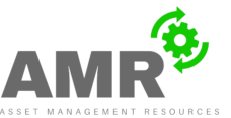How a Fixed Asset Management Software Benefits the Organisation
This article on our blog briefly covers the importance of fixed asset management systems and their organisational benefits.
The Importance of Fixed Asset Management Software
A fixed asset management software benefits an organisation in numerous ways. Crucial to the management of fixed assets is the implementation of sound software systems. These systems help users to accurately, effectively and efficiently manage fixed assets compared to more manual methods. Manual methods (e.g. spreadsheets) are subjected to drawbacks including but not limited to: (1) the lack of accuracy in the tracking of new fixed asset acquisitions (2) the inaccuracy in depreciation calculations (3) the manipulation/diversion of sensitive data. These systems help organisations derive the most value from their fixed assets throughout its lifetime.

How does my organisation benefit?
A fixed asset management software benefits your organisation in numerous ways. Benefits of utilising specialised systems include but are not limited to:
- Facilitating auditing and reporting processes by providing a central repository of crucial fixed asset data that can be easily retrieved and reported on
- Improving the accuracy of asset depreciation/amortization through depreciation functionalities in the system
- Improving visibility by helping users to efficiently keep track of all their assets by letting users know where are assets located, how assets are being used, whether any changes to assets have been made
- Permitting the managing of assets based at different locations
- Presenting crucial asset information in easily digestible formats while eliminating pen and paper methods
- Providing decision makers with asset information easily accessible asset information at their fingertips on which crucial decision making is based
- Permitting better controls related to fixed asset management to be in place
- Reducing information disparity through the consolidation of fixed asset information into a centralised system
- Improving operational efficiency
- Facilitating asset recovery through the data contained in the system
- Improving insurance handling by providing a data source from which to calculate insurance premiums
- Providing efficient recording and maintenance of asset maintenance information that can help with maintenance management
- Improving security by providing an audit trail of actions performed by users and restricting user access to sensitive data according to their levels of authorization.
